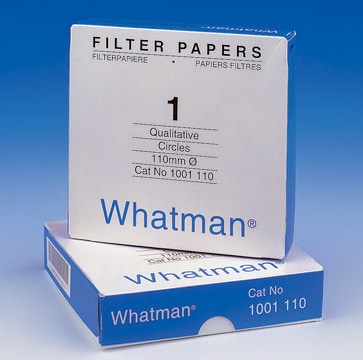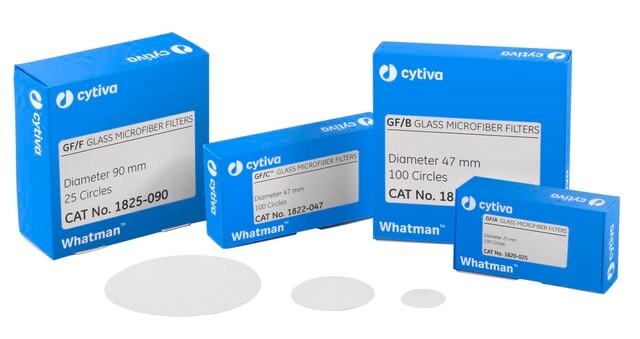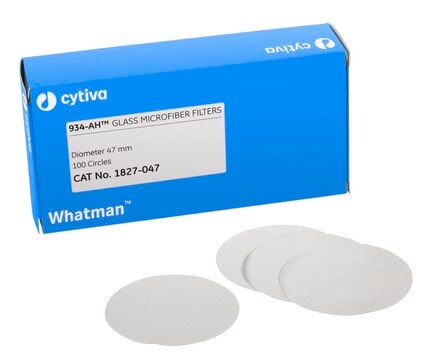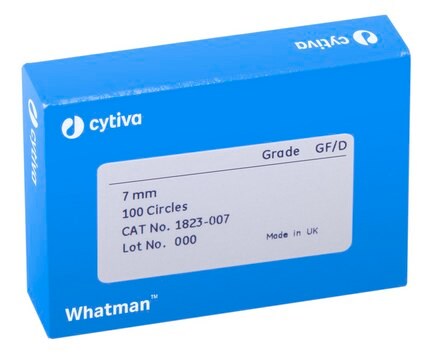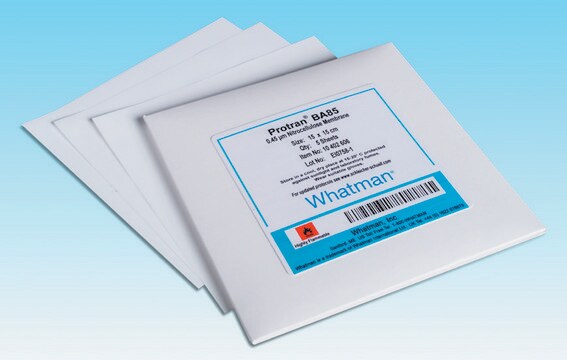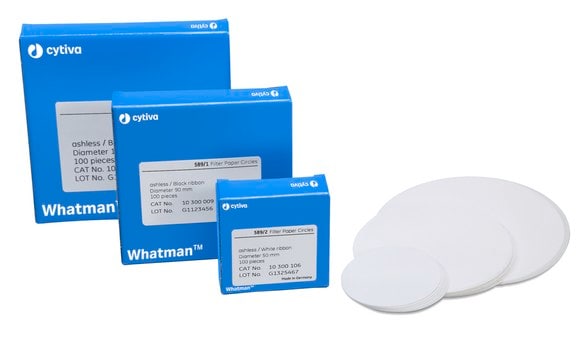WHA7195002
Whatman® nitrocellulose filter discs 5 μm pore size
white, hydrophilic, 100 ea, 25 mm diam
Synonyme(s) :
Whatman filter, Z746169, membrane filters, syringe filter
About This Item
Produits recommandés
Nom du produit
Whatman® nitrocellulose membrane filters, plain white, pore size 5 μm, diam. 25 mm
Matériaux
plain white
Stérilité
non-sterile
Conditionnement
pack of 100 ea
Fabricant/nom de marque
Whatman 7195-002
Whatman Article No. 28420761 (US reference)
Diamètre
25 mm
Dimension de pores
5 μm
Vous recherchez des produits similaires ? Visite Guide de comparaison des produits
Caractéristiques et avantages
- Narrow pore size distribution for improved surface capture and analysis.
- Low levels of extractables to ensure sample integrity.
Autres remarques
Informations légales
Mention d'avertissement
Warning
Mentions de danger
Conseils de prudence
Code de la classe de stockage
11 - Combustible Solids
Faites votre choix parmi les versions les plus récentes :
Certificats d'analyse (COA)
Désolés, nous n'avons pas de COA pour ce produit disponible en ligne pour le moment.
Si vous avez besoin d'assistance, veuillez contacter Service Clients
Déjà en possession de ce produit ?
Retrouvez la documentation relative aux produits que vous avez récemment achetés dans la Bibliothèque de documents.
Notre équipe de scientifiques dispose d'une expérience dans tous les secteurs de la recherche, notamment en sciences de la vie, science des matériaux, synthèse chimique, chromatographie, analyse et dans de nombreux autres domaines..
Contacter notre Service technique